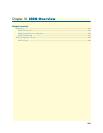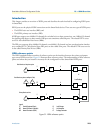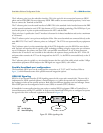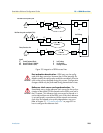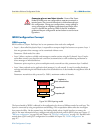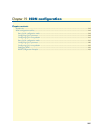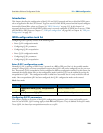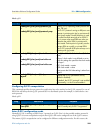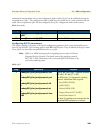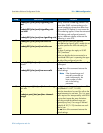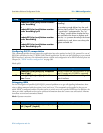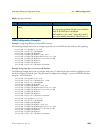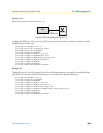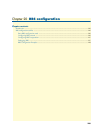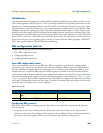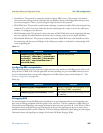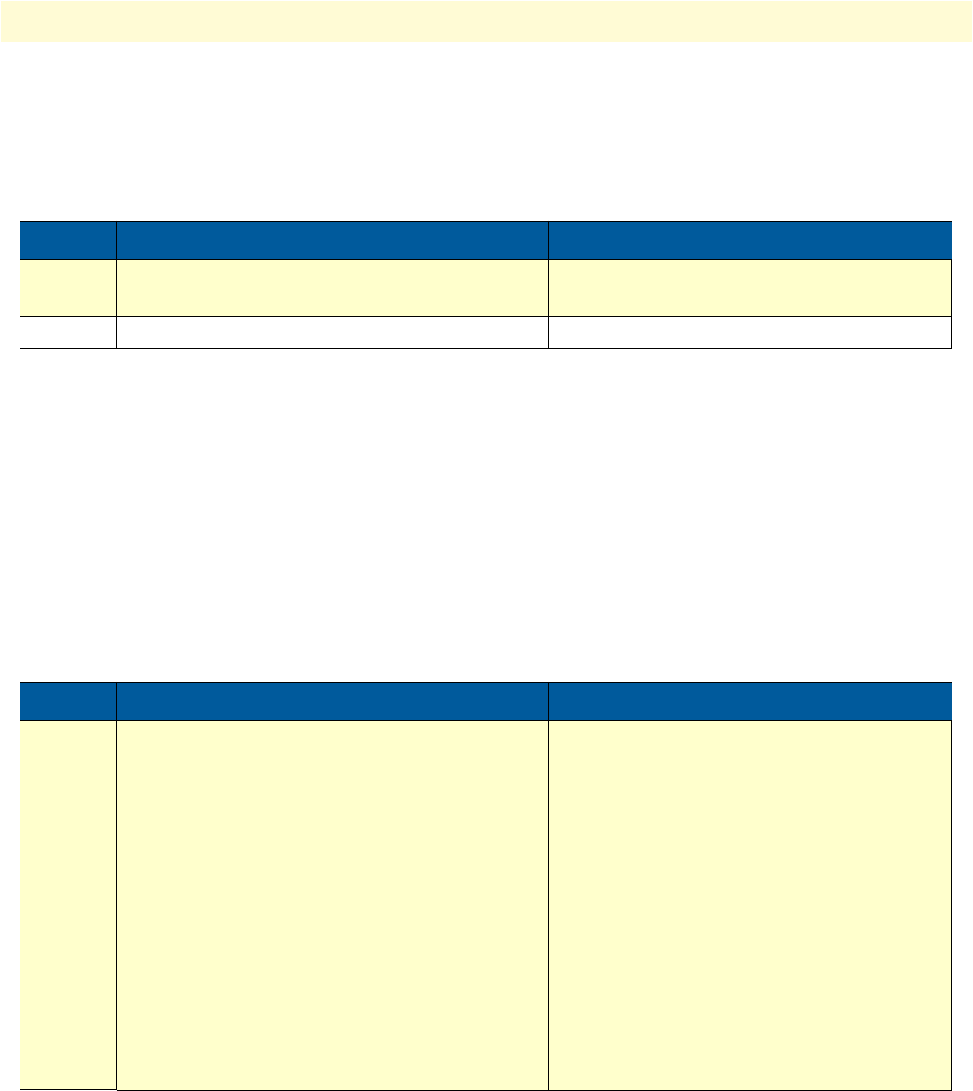
ISDN configuration task list 220
SmartWare Software Configuration Guide 19 • ISDN configuration
command description below refers to the configuration mode in which Q.931 can be enabled by setting the
encapsulation to ‘q931’. This configuration mode is called here ‘base-mode’ but it is only an alias for the real
mode. Once encapsulation q931 has been configured, the Q.931 configuration mode can be entered.
Mode: base-mode
Configuring Q.931 parameters
This chapter provides an overview of the Q.931 configuration parameters, their syntax and possible restric-
tions. In case of ISDN, Q.931 settings apply to both BRI and PRI ports. They are defined in the q931 mode.
To use Q931, the lower layer encapsulation must be set to q931.
Note QSIG is an ISDN based protocol for signaling between nodes of a Private
Integrated Services Network. The formal name of the signaling system by
ISO / IEC is PSS1. Both names will co-exist and QSIG will continue to be
used as the marketing name.
Mode: q931
Step Command Purpose
1
[name](base-mode)]#[no] encapsulation
q931
Enables/Disables Q.931
2
[name](base-mode)]#q931 Enter the Q.931 configuration mode
Step Command Purpose
1
node(q931)[slot/port]#protocol dss1
or
node(q931)[slot/port]#protocol pss1
or
node(q931)[slot/port]#protocol ni2
or
node(q931)[slot/port]#protocol ntt
or
node(q931)[slot/port]#protocol dms-
100
Specify the ISDN layer 3 protocol (Default:
BRI: dss1, E1: dss1, T1: ni2)
The ISDN layer 3 is the network signaling
protocol. SmartWare ISDN supports:
• Euro-ISDN (E-DSS1)
• Q.SIG (PSS1)
• National ISDN (NI2)
• Nippon Telecom NTT for BRI
• Nortel Dms-100 for T1
The layer 3 signaling must correspond to the
connected ISDN equipment or network.



